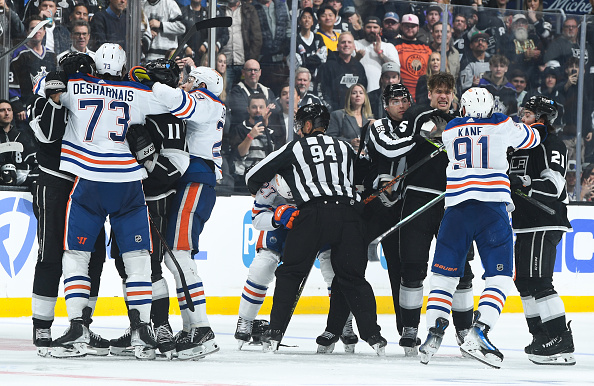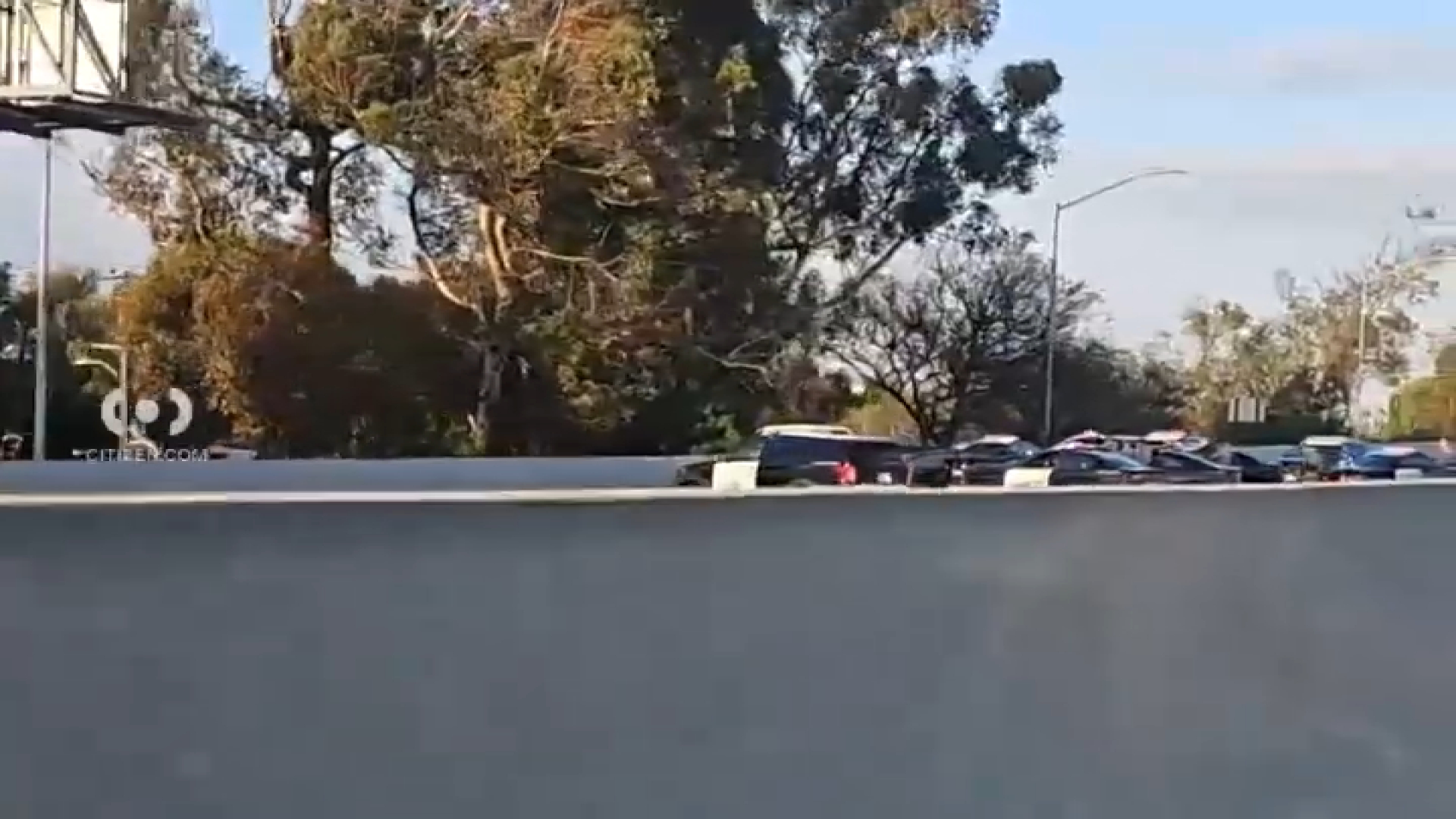California's attorney general called for same-sex marriages to resume "as soon as possible" in after the U.S. Supreme Court decided it will not take up an appeal in the case involving voter-approved Prop 8 -- one of two landmark same-sex marriages cases before the court Wednesday.
Full Coverage: Prop 8 Page | Read: Supreme Court's Prop 8 Opinion | Storify: Social Media Reaction
In a 5-4 ruling, the Court decided Prop 8 backers lacked standing under federal law to appeal the case, effectively leaving an earlier ruling by the Ninth Circuit Court that Prop 8 is unconstitutional in place. Chief Justice John Roberts wrote the majority opinion, joined by Justices Ruth Bader Ginsburg, Stephen Breyer, Elena Kagan and Antonin Scalia.
"We have no authority to decide this case on the merits, and neither did the 9th Circuit,'' Roberts said, referring to the federal appeals court that struck down Proposition 8, then issued a stay on its order to allow for the appeals process tha led to Wednesday's decision.
The decision likely means same-sex marriage can resume in California, although it is possible attorneys for Prop 8 backers will fight to limit the ruling to only the couples who challenged Prop 8 or present other challenges. The upcoming legal process -- including the lifting of the stay on the Ninth Circuit Court's order overturning Prop 8 -- means it could be weeks before same-sex marriages can resume in the state.
Under Supreme Court rules, the Justrices' rulings are usually final after 25 days. The 9th U.S. Circuit Court of Appeals said after Wednesday's ruling that it will take at least that long for the U.S. Supreme Court's ruling to become official, and that the San Francisco-based court said it may continue to bar same-sex marriages beyond that if proponents of Proposition 8 ask for a rehearing.
California Attorney General Kamala Harris called on the Ninth Circuit to lift the stay as soon as possible.
Harris' office filed a brief with the Supreme Court in February, arguing that Prop 8 supporters had no legal standing "to interfere with the right of others."
"The 58 counties of the state of California must abide by the ruling of Vaughn Walker of the district court when the stay is lifted, and thus commence marriages in California," Harris said.
Gov. Jerry Brown directed the California Department of Public Health to advise county officials that the court's order applies statewide.
"After years of struggle, the U.S. Supreme Court today has made same-sex marriage a reality in California," Brown said. "In light of the decision, I have directed the California Department of Public Health to advise the state’s counties that they must begin issuing marriage licenses to same-sex couples in California as soon as the Ninth Circuit confirms the stay is lifted."
Prop 8 defenders called Wednesday's decision "unfortunate," and that questions remain regarding the scope of the decision. Attorneys for Prop 8 supporters have said they may argue that any decisions in the case apply only to the plaintiffs who challenged Prop 8.
Local
Get Los Angeles's latest local news on crime, entertainment, weather, schools, COVID, cost of living and more. Here's your go-to source for today's LA news.
"While it is unfortunate that the Court’s ruling does not directly resolve questions about the scope of the trial court’s order against Prop 8, we will continue to defend Prop 8 and seek its enforcement until such time as there is a binding statewide order that renders Prop 8 unenforceable," said Andy Pugno, General Counsel for Protect Marriage.
The Prop 8 case and the federal Defense of Marriage Act drew a crowd that camped out early Wednesday in front of the Surpeme Court building. Chants of "Thank you'' and "USA'' erupted as plaintiffs in the cases descended the court's steps
"I look forward to growing old with the man I love," said Prop 8 plaintiff Jeff Zarrillo, of Burbank, on steps of the Supreme Court with his partner, Paul Katami.
Another same-sex marriage case before the court was struck down Wednesday when the Supreme Court ruled unconstitutional the federal Defense of Marriage Act. The 5-4 landmark ruling strikes down the law, which blocks the federal government from recognizing same-sex marriages in the states where they are legal.
The DOMA decision, written by Justice Anthony Kennedy, stated: "DOMA instructs all federal officials, and indeed all persons with whom same-sex couples interact, including their own children, that their marriage is less worthy than the marriages of others."
Kennedy was joined in the majority by Justices Ruth Bader Ginsburg, Stephen Breyer, Sonia Sotomayor and Elena Kagan. Dissenting were Chief Justice John Roberts and Justices Antonin Scalia, Clarence Thomas and Samuel Alito.
In the Prop 8 case, the Supreme Court had several options, which included dismissing the case on grounds that Prop 8 backers had no standing in federal court. The Court also had the option of issuing a broad ruling that affects same-sex marriage legislation in all states or a ruling specific to California's ban.
The long-awaited decision comes after Justices considered arguments from attorneys representing Prop 8 supporters and opponents at a March hearing. The Supreme Court granted in December the review of Prop 8 -- approved by California voters in November 2008 -- and the Federal Defense of Marriage Act, also argued before the court in March.
Attorneys' arguments focused on a 2010 ruling by a San Francisco-based appeals court that struck down the ban, approved by California voters in the 2008 election. The San Francisco court ruled the state could not take away the same-sex marriage right granted by the state Supreme Court in a ruling that came before the 2008 election.
The debate stretches back years through court cases and elections, including the March 2000 approval of Prop 22, which defined marriage in California as between a man and a woman.
That law was ruled unconstitutional by the state Supreme Court in May 2008. An estimated 18,000 same-sex couples were married during a brief window before Prop 8's approval in the November election that year.
California's same-sex marriage ban was left in effect during the lengthy appeals process that followed. The legal battle included a landmark 2010 same-sex marriage trial in which Chief U.S. District Judge Vaughn Walker ruled the ban unconstitutional. Walker said the law "both unconstitutionally burdens the exercise of the fundamental right to marry and creates an irrational classification on the basis of sexual orientation."
After appeals by Prop 8 supporters who said voters should not be invalidated "based on just one judge's opinion," a San Francisco court ruled in a 2-1 decision in November 2012 that Walker's ruling properly interpreted the U.S. Constitution. The court ruled that the ban's "only effect was to take away that important and legally significant designation."
As attorneys argued over the issue in court, public attitudes toward same-sex marriage shifted. In 2001, 57 percent of Americans opposed same-sex marriage, according to the Pew Forum on Religion and Public Life. In a poll conducted in March 2013, 49 percent of Americans said they support same-sex marriage.
In a June 2013 USC Dornsife/Los Angeles Times poll, 58 percent of respondents said they believe same-sex marriage should be legal. When the same question was asked in that poll three years earlier, 52 percent favored same-sex marriage.
The latest USC Dornsife/LA times poll also revealed that voters 65 years of age and older are now almost evenly divided on the issue -- 46 percent in favor, 47 percent opposed. Three years ago, the same age group opposed same-sex marriage by a margin of 19 percentage points.
A second case before the high court challenges the Defense of Marriage Act -- also known as DOMA. The act blocks federal recognition of same-sex couples in states where they are allowed to marry.
Nine states -- Connecticut, Iowa, Maine, Maryland, New Hampshire, New York, Massachusetts, Vermont and Washington -- and Washington D.C. allow same-sex marriages. Minnesota's same-sex marriage legislation, already signed into law by its governor, will go into effect in August.



